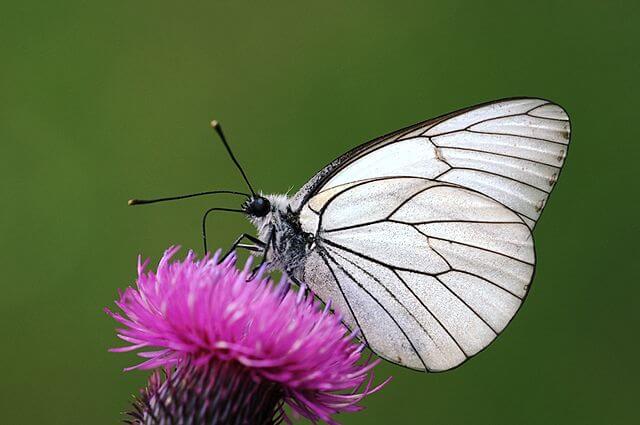
The recent sightings of an incredibly rare butterfly have sparked excitement among enthusiasts, as the species was believed to be extinct in Britain for nearly a century.
The black-veined white butterfly has made a sudden appearance in the countryside on the outskirts of London, causing a flutter of anticipation.
In small numbers, these black-veined whites have been observed gracefully fluttering through fields and hedgerows in the southeastern part of the city. To the untrained eye, they may easily be mistaken for the common cabbage white butterflies commonly seen in Britain during the summer. However, the black-veined white is far from ordinary on this side of the English Channel.
Initially listed as a British species during the reign of King Charles II, the black-veined whites were officially declared extinct in Britain in 1925. Yet, last month, these enigmatic creatures mysteriously reappeared in their favored habitat: among hawthorn and blackthorn trees on the outskirts of London. I, along with other naturalists, had the privilege of observing them gracefully flit between hedgerows.
These medium-sized white butterflies bear distinctive black vein markings on their wings, which lend them their name. The conservation charity Butterfly Conservation, responsible for monitoring butterfly populations in Britain, informed the BBC that the insects were likely released intentionally, although the motive and the individuals responsible remain unknown.
While it is a delightful experience for people to witness these magnificent creatures, Butterfly Conservation cautions that this occurrence probably does not signify the spontaneous revival of an extinct species.
Nonetheless, the unexpected reappearance of the black-veined white butterflies has stirred curiosity and rekindled hope for the preservation of rare and endangered species in the United Kingdom.
——————————————————————————
At Natural World Fund, we are passionate about stopping the decline in our wildlife.
The declines in our wildlife is shocking and frightening. Without much more support, many of the animals we know and love will continue in their declines towards extinction.
When you help to restore a patch of degraded land through rewilding to forests, meadows, or wetlands, you have a massive impact on the biodiversity at a local level. You give animals a home and food that they otherwise would not have had, and it has a positive snowball effect for the food chain.
We are convinced that this is much better for the UK than growing lots of fast-growing coniferous trees, solely to remove carbon, that don’t actually help our animals to thrive.
This is why we stand for restoring nature in the UK through responsible rewilding. For us, it is the right thing to do. Let’s do what’s right for nature!
Donate today at https://naturalworldfund.com/ and join in the solution!

